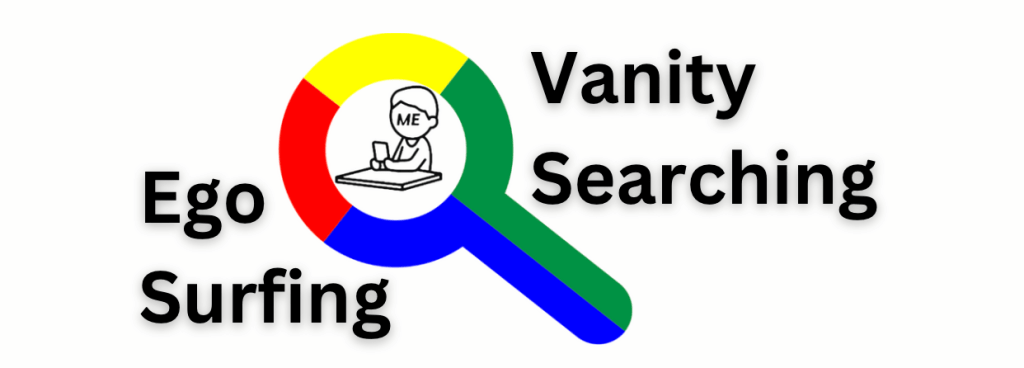Do you use Google to 'ego surf' or vanity search?
Have you Googled yourself lately? It’s probable. Have you Googled yourself today? It’s entirely possible…
The data trends on self-search behavior for monitoring one’s online presence (querying one’s name) suggest that most of us do it, and some do it frequently.
Online self-searching or vanity searching, dubbed ‘ego surfing’ in the 90s by internet expert Sean Carton, describes benign but perhaps narcissistic tendencies that may confirm self-serving biases. Terms like ‘ego-googling’ and ‘auto-googling’ emerged to describe vanity searching behaviors specific to Google, which remains the dominant search engine with a 90% market share!
What was once considered self-aggrandizing search behavior is now lauded as a best practice among search engine marketing strategists.
“What was once considered self-aggrandizing search behavior is now lauded as a best practice among search engine marketing strategists.”
Monitoring one’s online presence is a hallmark of strong digital brand curation and online reputation management. One must know how and what they present online before they can manage and enhance their digital presence.
According to the international market research firm You Gov, nearly three-quarters of adults under 30 were self-searching in 2014. In contrast, less than 40% of adults between 30 and 65 have queried their names, indicating that digital native generations may be more inclined to search for themselves. More importantly, the research firm found that most adults (57% of individuals between 18 and 65) had Googled themselves in 2014, and 50-60% continue to conduct self-searches today. In addition to age, education level and profession influence self-search behavior.
Concerning frequency, You Gov found that as many as 10 percent of adults search their names daily, and 25% search for themselves monthly using Google or another search engine like Yahoo, Bing, DuckDuckGo, etc.
Self-searching is valuable for managing image and digital presence; it is not just an indulgence in vanity.
“Self-searching is valuable for managing image and digital presence; it is not just an indulgence in vanity.”
Search engines want you to search for yourself and curate your online presence. This is why they introduced knowledge panels to enhance the online presence of entities (people, places, and things). Google Knowledge Panels, for example, pull data from the Google Knowledge Graph, including IMDb profiles, Wikipedia bios, and Amazon author listings. Once claimed and verified, Google Knowledge Panels can be intensively edited and managed.
Search engines also encourage you to see who is searching for you. In addition to analytic tools like Google Analytics for website traffic monitoring, Google introduced Google Trends to help internet users determine how often others search for their names and miscellaneous entities. Talent reps, including publicists and agents, rely on these search resources to manage their clients’ reputations.
But it’s not just the public figure that benefits from auto-searching; the names of business owners and entrepreneurs are inextricably linked to their professional brands. It is essential to search for yourself before others find you, including your competitors. Just as you might look in the mirror before you leave the house for an important event, you should regularly monitor your online presence.
A Google search for oneself can provide comparisons to competitors or uncover opportunities for collaboration and engagement with stakeholders, including customers, clients, and colleagues. The benefits are immeasurable, and the practice is easy and accessible to anyone with internet access.


